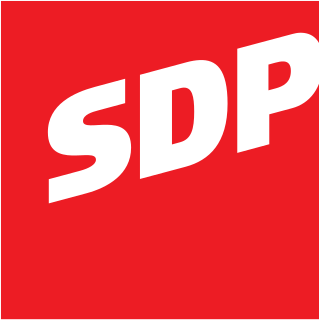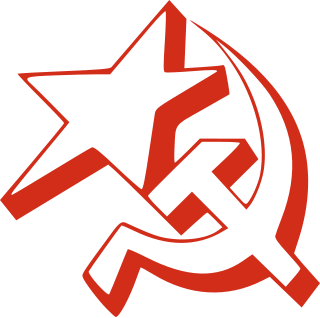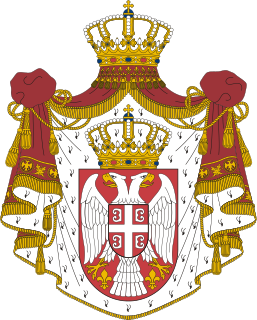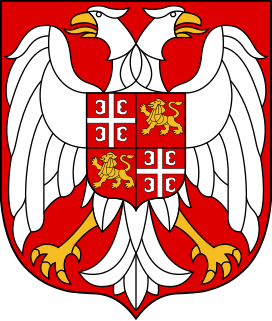The politics of Croatia are defined by a parliamentary, representative democratic republic framework, where the Prime Minister of Croatia is the head of government in a multi-party system. Executive power is exercised by the Government and the President of Croatia. Legislative power is vested in the Croatian Parliament. The Judiciary is independent of the executive and the legislature. The parliament adopted the current Constitution of Croatia on 22 December 1990 and decided to declare independence from Yugoslavia on 25 May 1991. The Constitutional Decision on the Sovereignty and Independence of the Republic of Croatia came into effect on 8 October 1991. The constitution has since been amended several times. The first modern parties in the country developed in the middle of the 19th century, and their agenda and appeal changed, reflecting major social changes, such as the breakup of Austria-Hungary, the Kingdom of Serbs, Croats and Slovenes, dictatorship and social upheavals in the kingdom, World War II, the establishment of Communist rule and the breakup of the SFR Yugoslavia.

The Croatian Parliament or the Sabor is the unicameral legislature of the Republic of Croatia. Under the terms of the Croatian Constitution, the Sabor represents the people and is vested with legislative power. The Sabor is composed of 151 members elected to a four-year term on the basis of direct, universal and equal suffrage by secret ballot. Seats are allocated according to the Croatian Parliament electoral districts: 140 members of the parliament are elected in multi-seat constituencies. An additional three seats are reserved for the diaspora and Croats in Bosnia and Herzegovina, while national minorities have eight places reserved in parliament. The Sabor is presided over by a Speaker, who is assisted by at least one deputy speaker.

The Croatian Democratic Union is the major conservative, centre-right political party in Croatia. It is one of the two major contemporary political parties in Croatia, along with the centre-left Social Democratic Party (SDP). It is currently the largest party in the Sabor with 61 seats. The HDZ ruled Croatia from 1990 before the country gained independence from Yugoslavia until 2000 and, in coalition with junior partners, from 2003 to 2011, and since 2016. The party is a member of the European People's Party (EPP). The HDZ's leader, Andrej Plenković, is the current Prime Minister of Croatia, having taken office following the 2016 parliamentary election.

The Social Democratic Party of Croatia is a social-democratic political party in Croatia and the largest party of the Croatian centre-left. The SDP is one of the two major political parties in Croatia, along with the centre-right Croatian Democratic Union (HDZ). The SDP is anti-fascist, progressive, and strongly pro-European. The SDP was formed in 1990 as the successor of the League of Communists of Croatia, Croatian branch of the League of Communists of Yugoslavia, which had governed Croatia within the Yugoslav federation since World War II.

The Socialist Party of Serbia is a political party in Serbia led by Ivica Dačić. It was founded in 1990 as the direct successor to the League of Communists of Serbia, with Slobodan Milošević serving as the party president from its foundation until 1991, and again from 1992 until 2001. In 2003, Dačić was elected as the party president and has been serving as the president since then.

The Democratic Party is a social-democratic and social-liberal political party in Serbia.
The Democratic Party of Socialists of Montenegro is a populist political party in Montenegro. A former long-time ruling party sitting at the opposition for the first time as of 2020, it was formed on 22 June 1991 as the successor of the League of Communists of Montenegro, which had governed Montenegro within the Socialist Federal Republic of Yugoslavia since World War II, and has remained a major force in the country ever since. A member of the Socialist International and the Progressive Alliance, and an associate of the Party of European Socialists, the DPS was the major centre-left, social-democratic party, broadly embracing democratic socialism and Serbian-Montenegrin unionism but has since shifted to the right and has become a catch-all party embracing Atlanticism, Montenegrin nationalism, neoliberalism, and pro-Europeanism.

The Social Democrats is a centre-left and pro-European social-democratic political party in Slovenia led by Tanja Fajon. From 1993 until 2005, the party was known as the United List of Social Democrats. It is the successor of the League of Communists of Slovenia. As of 2021, the party is in opposition in the Slovenian parliament, and is a full member of the Progressive Alliance.

Liberal Alliance of Montenegro was a Montenegrin separatist, liberal and anti-war political party, active between 1990 and 2005. The Liberal Alliance was a full member of the Liberal International from 1994 until its dissolution in 2005.

Social Democratic Party of Montenegro, or just the Social Democratic Party, abbr. SDP is a social democratic and civic nationalist political party in Montenegro. It is the only party in Montenegro to have full membership in the Socialist International. From 1998 until the 2016 coalition split, it was minor coalition patner within the Milo Đukanović's DPS-led regime.

The Serbian Renewal Movement is a liberal, monarchist political party in Serbia.

The New Communist Party of Yugoslavia is a communist party in Serbia. The NKPJ was formed in 1990. Its General Secretary is Branko Kitanović, a writer and a translator. The party has a youth section, the League of Youth Communist of Yugoslav (SKOJ) formed in 1992. The NKPJ follows the theories of Karl Marx, Friedrich Engels, Vladimir Lenin and Joseph Stalin and considers Cuba and North Korea to be socialist states while considering Laos, China, and Vietnam to have socialist leanings. The NKPJ is strongly against Titoism but is of the opinion that Tito's Yugoslavia was a socialist state until 1990. The NKPJ's goal is the reunification of Yugoslavia as a communist state.

The 1992 Montenegrin independence referendum was the first referendum regarding Montenegrin independence, held on 1 March 1992 in SR Montenegro, a constituent republic of the Socialist Federal Republic of Yugoslavia.

The Politics of Serbia are defined by a unitary parliamentary framework that is defined by the Constitution of Serbia in which the president, currently Aleksandar Vučić, is the head of state while the prime minister, currently Ana Brnabić, is the head of government. Executive power is exercised by the Serbian government and the President of Serbia. Legislative power is vested in the unicameral National Assembly which is composed of 250 proportionally elected deputies. The judiciary is independent and is headed by the Supreme Court of Cassation, which is also the highest court in Serbia.

Dragoljub Mićunović is a Serbian politician and philosopher. As one of the founders of the Democratic Party, he served as its leader from 1990 to 1994, as the president of the parliament of Serbia and Montenegro from 2000 to 2004.

General elections were held in Montenegro, at the time a constituent republic of Yugoslavia, on 20 December 1992. A second round of the presidential election was held on 10 January 1993. The elections were seen as a referendum on independence for Montenegro, and were won by the Democratic Party of Socialists of Montenegro who favoured greater autonomy within Yugoslavia. The presidential elections were won by Momir Bulatović, who received 63.4% of the vote in the second round. The result of the parliamentary elections was a victory for the Democratic Party of Socialists of Montenegro (DPS) who succeed ruling League of Communists of Montenegro. DPS won 46 of the 85 seats.

In Yugoslavia, elections were held while it had existed as the Kingdom of Yugoslavia, the first one being in 1918 for the Provisional Popular Legislature of Serbs, Croats and Slovenes and the last being the parliamentary election of 1938. Women were not eligible to vote. After the 1918 indirect ones, the 1920 parliamentary election was the first direct one. Parliamentary elections were held in 1923, 1925 and 1927, while with the new constitution a de facto Lower and Upper House were introduced in 1931. The 1931 elections were not free, as they were handled under a single-course dictatorship, while the 1935 and 1938 were held under limited basic democratic principles.

Parliamentary elections were held in Yugoslavia on 31 May 1992. The elections were boycotted by almost all opposition parties in protest at both how the electoral law had been passed, and the unequal access to finance and the media given to the governing and opposition parties. Independent Milan Panić became federal Prime Minister. Following mass protests, Panić and federal President Dobrica Ćosić agreed to hold new elections in December under a new electoral system.
This article lists events that occurred during 1993 in the Federal Republic of Yugoslavia.
Local elections were held in cities and municipalities across Serbia on 20 December 1992, with a second round of voting taking place on 3 January 1993. The local elections were held concurrently with parliamentary elections in Yugoslavia, presidential and parliamentary elections in Serbia, and elections for the Vojvodina provincial assembly.
















